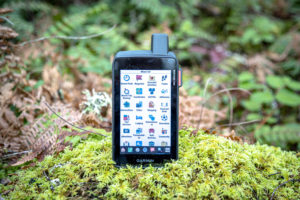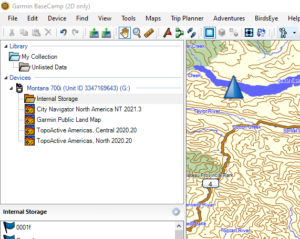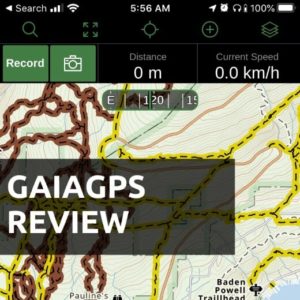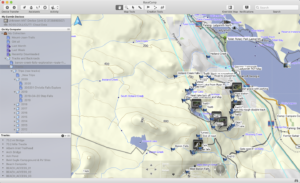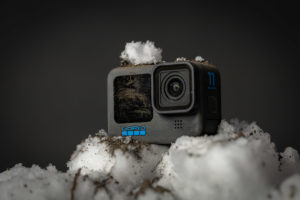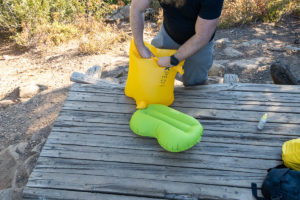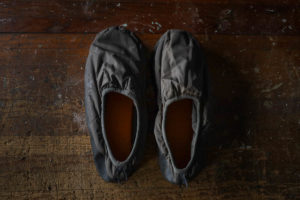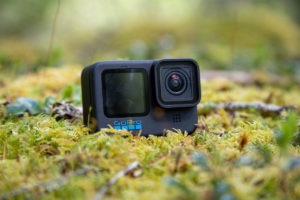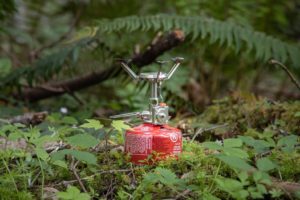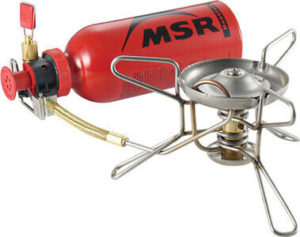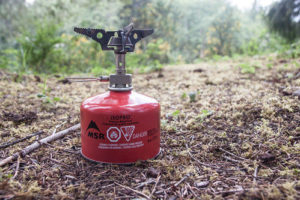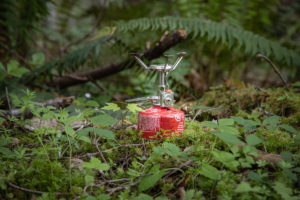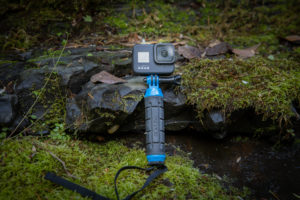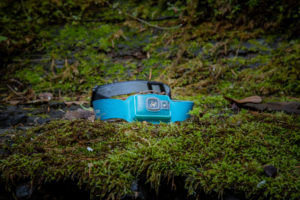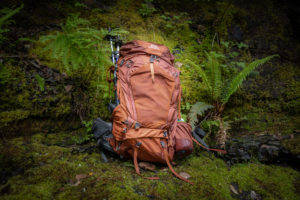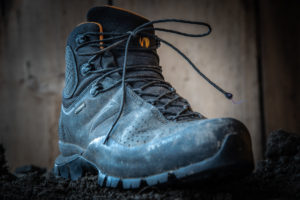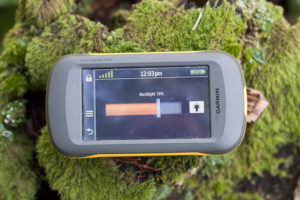GPS is a term thrown around a lot these days but when it all comes down to it, something with GPS can show where you are on a map.
In this article:

What is a GPS?
GPS stands for Global Positioning System. It’s a series of satellites floating around the earth that talks to an antennae in your GPS unit or phone. Using the signal from multiple satellites and some very complicated math, the GPS can figure out where you are on a map.
When you have a clear view of the sky, the GPS can clearly see more satellites and it’s location will be more accurate. If you are in dense tree cover, amongst many buildings or in a canyon, there aren’t as many satellites to see and accuracy will be lower.
GPS and cell reception
GPS connection and cell reception on your phone are different things. You can have a GPS connection to the satellites but be too far from any cell tower to get voice or date for your phone. This is important for map data.
GPS apps on your phone usually need two things: GPS reception to figure out where you are and data connection to download maps. If there’s no data to download maps then your phone will know where you are but can’t download the street or terrain maps to show it. But most apps can go offline to solve this.
When you download maps offline, you’re eliminating the need for data when you’re off the grid. When the maps are downloaded to your phone, you won’t need a data connection, just GPS. If you move into a new area where you don’t have maps downloaded, then you won’t be able to see anything. Some apps automatically download these maps for you, but for most, you have to find the download option and pick which ones you want.
GPS units vs phone apps
Right now there are 2 main groups of GPS: dedicated GPS units and phones.
Dedicated GPS are like a Garmin 64 series GPS that are just a GPS. That is it’s only function. They will show you a map, track where you’ve been and let you navigate to waypoints and routes.
Phones obviously do a lot more. With an app on your phone you can see your location on a map, track where you’ve been, navigate to waypoints and routes and take photos. After you’re done, you can use everything else on your phone or upload the tracks and images to websites online.
Dedicated GPS usually have larger GPS antennae than phones do and so can connect to more satellites for a more accurate signals. They also can have much better battery life. Dedicated GPS usually have battery life measured in days where as phone battery life is measured in hours when using the GPS.
GPS Articles
GPS is an in-depth topic. Dig in to these other articles.
- Garmin Montana 700i GPS Review
With a massive 5” screen and inReach satellite communicator built-in, the Montana 700i can go in the car and on the trail for any adventure.
- Garmin Basecamp: Send a track to your GPS
After you have created a GPS track on your computer, this is how to get it onto your Garmin GPS.
- Gaia GPS App ReviewWith the switch to phones for everything these days, it’s no wonder everyone is using them for GPS as well. … Read More »Gaia GPS App Review
- Satellite Communication: Can a GPS unit help you get rescued? (Part 2)There are 4 parts to this series: Intro: Satellite Communication GPS: Can they get you rescued? (this article) Spot vs… Read More »Satellite Communication: Can a GPS unit help you get rescued? (Part 2)
- 15 Ways to Extend your GPS Battery LifeGPS can be a blessing when you’re out adventuring but they have an achilles heel that can get you into… Read More »15 Ways to Extend your GPS Battery Life
- Garmin Basecamp Series: Everything you need to know about Garmin’s GPS SoftwareGPS are becoming so popular these days with avid outdoors people and folks cruising around cities. If you own a… Read More »Garmin Basecamp Series: Everything you need to know about Garmin’s GPS Software
- Garmin Montana 600 GPS ReviewThis first part is a bit of a story about the demise of my Garmin Colorado 300. Skip to the… Read More »Garmin Montana 600 GPS Review
Other Backpacking Gear
You’ll need more than just a GPS to head out backpacking. Here are guides to all the other gear you need for backpacking.
- GoPro Hero11 Black Camera ReviewEvery year we get another Hero action camera as GoPro shows us why they’re the king of action cameras. And this year, again, they continue to push the boundaries of… Read More »GoPro Hero11 Black Camera Review
- Helly Hanson Verglas Down Insulated Jacket Review: Long and WarmNo one should be without a lightweight puffy jacket. They’re light, packable and warm. Helly Hansen are known for making some of the best waterproof shell jackets around but they… Read More »Helly Hanson Verglas Down Insulated Jacket Review: Long and Warm
- EXPED Ultra Pillow ReviewPillows are controversial topic in backpacking communities. Some hikers won’t talk too you again if they find out you’re using a pillow. The others have given up faking they can… Read More »EXPED Ultra Pillow Review
- EXPED Camp Slippers Review: Lightweight and ComfyThe last thing I want to do when I get into camp is spend more time in my boots. They’re hot, moist with sweat and heavy to lug around past… Read More »EXPED Camp Slippers Review: Lightweight and Comfy
- EXPED Dura 3R Sleeping Mat ReviewGetting a good night sleep on the trail can make or break a hiking trip. I get a solid 7 or 8 hours at home usually but when I go… Read More »EXPED Dura 3R Sleeping Mat Review
- GoPro Hero10 ReviewCan action cameras really get that much better every single year? Well, yes. They have so far. The GoPro Hero10 is proof. The Hero9 came out in 2020 and is… Read More »GoPro Hero10 Review
- Free Ebook: Backpacking Gear for BeginnersThere’s a lot of stuff you can take backpacking. But not all of it you should. Every wish there was a book that listed out exactly what you needed to… Read More »Free Ebook: Backpacking Gear for Beginners
- How to choose a camping stoveToday we’re going to jump into some details about backpacking stoves and what you’ll want to consider when getting a new one. Let’s get cookin’. You’ve just spent all day… Read More »How to choose a camping stove
- Liquid fuel backpacking stoves: Pros and ConsWhile you’re out in the woods on a hike, you don’t want to be carrying more weight than you absolutely have to. Your backpacking stove is one thing where you… Read More »Liquid fuel backpacking stoves: Pros and Cons
- Backcountry kitchen: Canister fuel stovesWhen you start overnight hiking, you’ll probably be looking at some sort of backpacking stove to cook food with. It’s not absolutely required, you could just bring packaged and dried… Read More »Backcountry kitchen: Canister fuel stoves
- What exactly is a backpacking stove?What exactly is a backpacking stove? Why is one stove a backpacking stove and one not? There are lots out there of all different kinds. A quick search on Google… Read More »What exactly is a backpacking stove?
- Backpacking StovesIf you want a warm meal on your backpacking trip then you’ll need some way to cook it or at least heat up the water. Some people go stoveless on… Read More »Backpacking Stoves
- Cameras for BackpackingThere are 2 camps when it comes to hiking photos: those that never take a picture and just soak it all in and the rest of us. For the rest… Read More »Cameras for Backpacking
- Headlamps: How to Buy One for HikingWhen the lights go out in the backcountry, it’s dark. Like really dark. If you want to do anything safely after dark, or get that dawn patrol in before work,… Read More »Headlamps: How to Buy One for Hiking
- Backpacking Tents: Everything You Need to KnowSmall, light backpacking tents are what most people use for shelter when they’re out backpacking. There are other options like hammocks and tarps but they require a little bit more… Read More »Backpacking Tents: Everything You Need to Know
- Backpacking Packs: Everything You Need to KnowSmall backpacks are great for day hikes and travelling but when it comes to staying out in the backcountry for multiple days we need something a bit bigger. It needs… Read More »Backpacking Packs: Everything You Need to Know
- Hiking Boots
Everything you need to know about hiking boots
- GPS for Hiking
Answers to all your questions about GPS units and phone apps.
